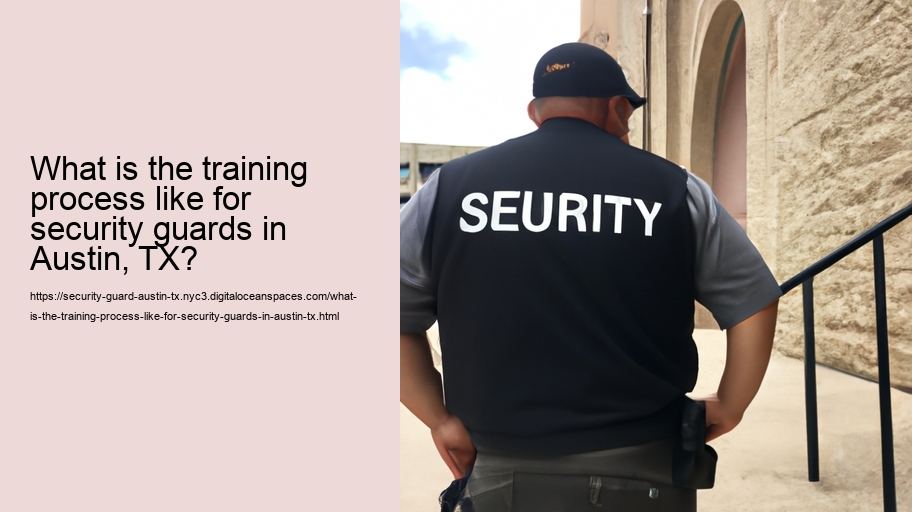The training process for security guards in Austin, TX is quite an engaging experience (and sometimes even a bit daunting!). What is the average salary for a security guard in Austin, TX? . It’s not just about learning how to stand guard or looking tough; there's much more to it. Firstly, let’s dispel the myth that anyone can just walk into a security job without any preparation – that's simply not true.
Most aspiring security guards start with a basic training course. In Texas, this usually means completing a Level II training program. This program covers essential topics like ethics, legal issues, and emergency response procedures. Trainers emphasize the importance of understanding the law because, believe it or not, many people think they don’t need to know it! But knowing your legal boundaries is crucial.
After finishing Level II, some might decide to advance their skills through Levels III and IV training. Level III delves deeper into things like defensive tactics and firearms training (yes, you read that right). Not all security jobs require carrying a weapon but if you're aiming for one that does — you'd better be prepared! The instructors ensure participants understand both the responsibilities and risks involved in armed security work.
Now here's where it gets really interesting: practical exercises. It's one thing to learn from books or lectures (which can get kinda boring), but another to practice real-life scenarios. Trainees participate in drills that simulate situations they might encounter on the job -- everything from handling unruly crowds to detecting suspicious activities. These drills are designed to test their reactions and decision-making skills under pressure.
Communication skills are also an integral part of the curriculum. Security guards must interact with people daily - whether it's assisting someone who needs help or defusing tense situations. Therefore, effective communication cannot be overlooked! Trainers often conduct role-playing sessions where trainees practice talking through various scenarios.
One aspect often underestimated is physical fitness. A good portion of the training involves keeping up your stamina and strength because let's face it: you can't protect others if you're out of shape yourself! Regular fitness assessments ensure candidates maintain adequate physical standards throughout their careers.
Once formal training wraps up (phew!), there’s usually an on-the-job component as well – kind of like an internship but for security work instead of office tasks. New hires shadow experienced guards to learn specific protocols unique to their employer's needs – every company has its own set of rules after all!
In conclusion: becoming a security guard in Austin isn’t just about wearing a uniform; it's about rigorous preparation encompassing legal knowledge, practical exercises, communication skills and physical fitness too! Those who go through this process emerge better equipped not only for protecting others but also ensuring they stay safe themselves while doing so—no small feat indeed!
So next time you see those diligent professionals at work around town remember—they’ve undergone comprehensive training programs tailored specifically towards making our community safer each day... How cool is that?
